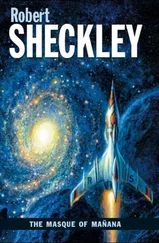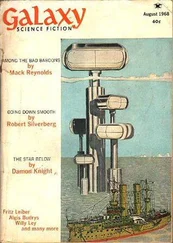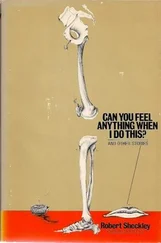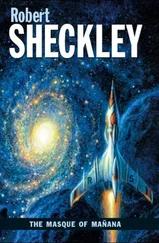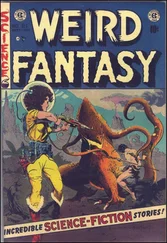| If he did, though, he'd paint a tachyon trail like a blazing line across the cosmos. |
Однако это значит прочертить тахионным лучом след, словно пылающую линию. |
| And they could track him and come after him in their ramjet fighters at .75 lights, and there was about one chance in three that they could locate him with only a single point-source coordinate, and overtake him, and pick him up. |
Существовал один шанс из трех, что его обнаружат и перехватит военным крейсером. |
| He didn't want to risk it, not yet, not while he was still this close to home. |
Риск велик, а он не хотел рисковать; нет, пока еще рано, чересчур близко. |
| But what if the junta had been crushed at the outset? |
Ну а если хунту раздавили в зародыше? |
| What if the coup had failed? |
Если путч не удался? |
| What if he spent the next three years foolishly fleeing toward Rigel, when all was well at home, and a single call could tell him that? |
Если он проведет три года в глупом бегстве к Ригелю, когда дома все благополучно? |
| He stared at the ultrawave set. |
Он не сводил взгляда с ультраволнового передатчика. |
| He nearly turned it on. |
Он едва не включил его. |
| A thousand times during those three days he reached toward it, hesitated, halted. Don't. Don't. |
Тысячи раз за эти три дня Войтленд тянулся к выключателю, терзался сомнениями, останавливался. Нет, не смей. |
| They'll detect you and come after you. |
Они засекут тебя и догонят . |
| But what if I don't need to keep running? It was Contingency C. |
Но может быть, я убегаю зря? Возникла "ситуация С". |
| The cause was lost. |
Дело потеряно_. |
| That's what our integrator net said. |
Так сообщила интеграторная сеть. |
| But machines can be wrong. |
Однако машины могут ошибаться. |
| Suppose our side managed to stay on top? |
Может, наши удержались? |
| I want to talk to Juan. |
Я хочу говорить с Хуаном. |
| I want to talk to Mark. |
Я хочу говорить с Марком. |
| I want to talk to Lydia. |
Я хочу говорить с Лидией. |
| That's why you brought the cubes along. |
Потому ты и взял их матрицы. |
| Keep away from the ultrawave. |
Держись подальше от передатчика. |
| On the fourth day, he picked out six cubes and put them in the receptor slots. |
На следующий день он вложил в приемный паз шесть кубиков. |
| Screens glowed. |
Экраны засветились. |
| He saw his father, his son, his oldest friend. He also saw Hemingway, Goethe, Alexander the Great. |
Он увидел сына, отца, старого верного друга, Хемингуэй, Гете, Александра Великого. |
| "I have to know what's happening at home," Voigtland said. "I want to call them." |
- Я должен знать, что происходит дома, - сказал Войтленд. - Я хочу выйти на связь. |
| "I'll tell you." It was Juan who spoke, the man who was closer to him than any brother. |
- Не надо. Я сам могу тебе все рассказать. -Говорил Хуан, человек, который был ему ближе брата. |
| The old revolutionary, the student of conspiracies. |
Закаленный революционер, опытный конспиратор. |
| "The junta is rounding up everyone who might have dangerous ideas and locking them away. |
- Хунта проводит массовые аресты. |
| It's telling everybody else not to worry, stability is here at last. McAllister is in full control; calling himself provisional president or something similar." |
Верховодит Мак-Аллистер, величающий себя Временным Президентом. |
| "Maybe not. |
- А может быть, нет. |
| Maybe it's safe for me to turn and go back." |
Вдруг я могу спокойно вернуться... |
| "What happened?" Voigtland's son asked. |
- Что случилось? - спросил сын Войтленда. |
| His cube hadn't been activated before. He knew nothing of events since he had been cubed, ten months earlier. "Were you overthrown?" |
Его куб еще не включался, и он ничего не знал о происшедших событиях. Запись была сделана десять месяцев назад. - Переворот? |
| Juan started to explain about the coup to Mark. |
Хуан стал рассказывать ему про путч. |
| Voigtland turned to his father. |
Войтленд повернулся к своему отцу. |
| At least the old man was safe from the rebellious colonels; he had died two years ago, in his eighties, just after making the cube. |
По крайний мере, старику не грозили мятежные полковники: он умер два года назад, вскоре после записи. |
| The cube was all that was left of him. |
Кубик - вот все, что от него осталось. |
| "I'm glad this didn't happen in your time," Voigtland said. "Do you remember, when I was a boy, and you were President of the Council, how you told me about the uprisings on other colonies? |
- Я рад, что это случилось не при тебе, - сказал Войтленд. - Помнишь, когда я был маленьким мальчиком, а ты - руководителем Совета, ты рассказывал о восстаниях в других колониях? |
| And I said, No, Bradley's World is different, we all work together here." |
И я сказал: "Нет, у нас все иначе, мы всегда будем вместе". |
| The old man smiled. He looked pale and waxy, an echo of the man he had been. |
Старик улыбнулся. |
| "No world is different, Tom. |
- Увы, Том, мы ничем не примечательны. |
| Political entities go through similar cycles everywhere, and part of the cycle involves an impatience with democracy. I'm sorry that the impatience had to strike while you were in charge, son." |
И нет спасения от тиранов, ненавидящих демократию. |
| "Homer tells us that men would rather have their fill of sleep, love, singing, and dancing than of war," Goethe offered, smooth-voiced, courtly, civilized. "But there will always be some who love war above all else. |
- По словам Гомера, люди предпочитают сон, любовь, пение и танцы, заметил сладкоголосый, учтивый Гете. - Но всегда найдутся возлюбившие войну. |
| Who can say why the gods gave us Achilles?" |
Кто скажет, почему боги даровали нам Ахилла? |
| " I can," Hemingway growled. "You define man by looking at the opposites inside him. |
- Я скажу! - прорычал Хемингуэй. - Вы даете определение человека по присущим ему внутренним противоречиям. |
| Love and hate. |
Любовь и ненависть. |
| War and peace. |
Война и мир. |
![Роберт Силверберг Как хорошо в вашем обществе [английский и русский параллельные тексты] обложка книги](/books/34132/robert-silverberg-kak-horosho-v-vashem-obchestve-ang-cover.webp)
![Роберт Шекли - Компания «Необузданные таланты» [английский и русский параллельные тексты]](/books/34808/robert-shekli-kompaniya-neobuzdannye-talanty-angl-thumb.webp)

